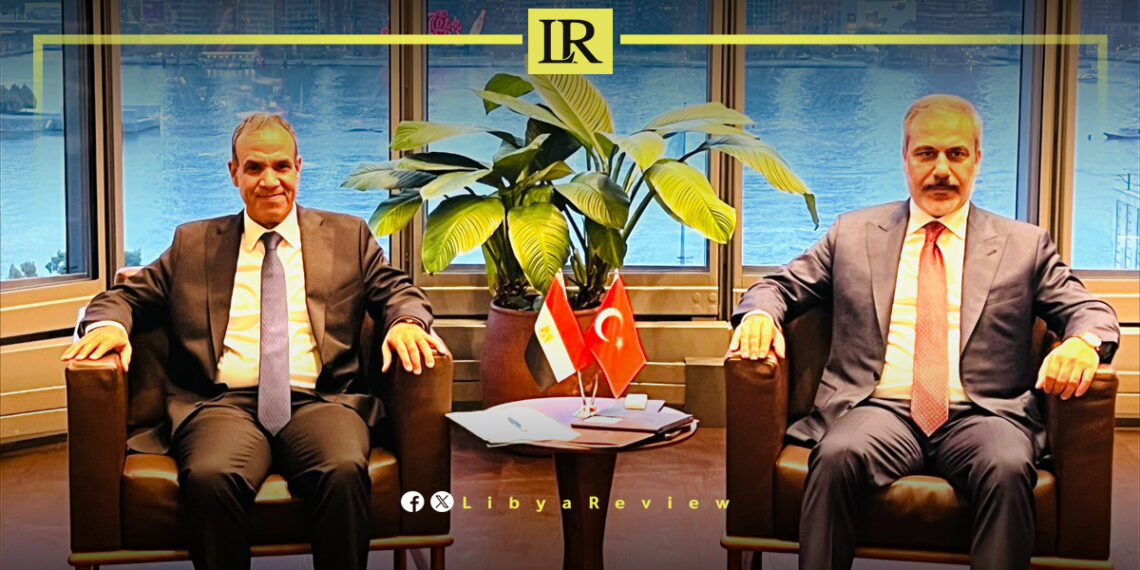Turkish Foreign Minister Hakan Fidan and his Egyptian counterpart Badr Abdelatty have agreed to enhance coordination and cooperation between their countries on various regional and international issues, with a particular focus on the Libyan crisis.
The discussions took place on the sidelines of the 79th session of the United Nations General Assembly in New York, where the two diplomats exchanged views on the situation in Libya, as well as other pressing matters affecting the region, including conflicts in Sudan, Syria, and Yemen, according to a statement from the Egyptian Foreign Ministry.
This agreement follows Egyptian President Abdel Fattah El-Sisi’s recent visit to Ankara, which culminated in the signing of a joint declaration during the first meeting of the High-Level Strategic Cooperation Council, aimed at fostering closer ties between the two nations.
The meeting underscored the commitment of Turkey and Egypt to work together in addressing the challenges posed by ongoing crises in the region, including the instability in Libya.
Libya has been in chaos since a NATO-backed uprising toppled longtime leader Muammar Gaddafi in 2011. The county has for years been split between rival administrations.
Libya’s economy, heavily reliant on oil, has suffered due to the ongoing conflict. The instability has led to fluctuations in oil production and prices, impacting the global oil market and Libya’s economy.
The conflict has led to a significant humanitarian crisis in Libya, with thousands of people killed, and many more displaced. Migrants and refugees using Libya as a transit point to Europe have also faced dire conditions.
The planned elections for December 2021 were delayed due to disagreements over election laws and the eligibility of certain candidates. This delay has raised concerns about the feasibility of a peaceful political transition.
Despite the ceasefire, security remains a significant concern with sporadic fighting and the presence of mercenaries and foreign fighters. The unification of the military and the removal of foreign forces are crucial challenges.


